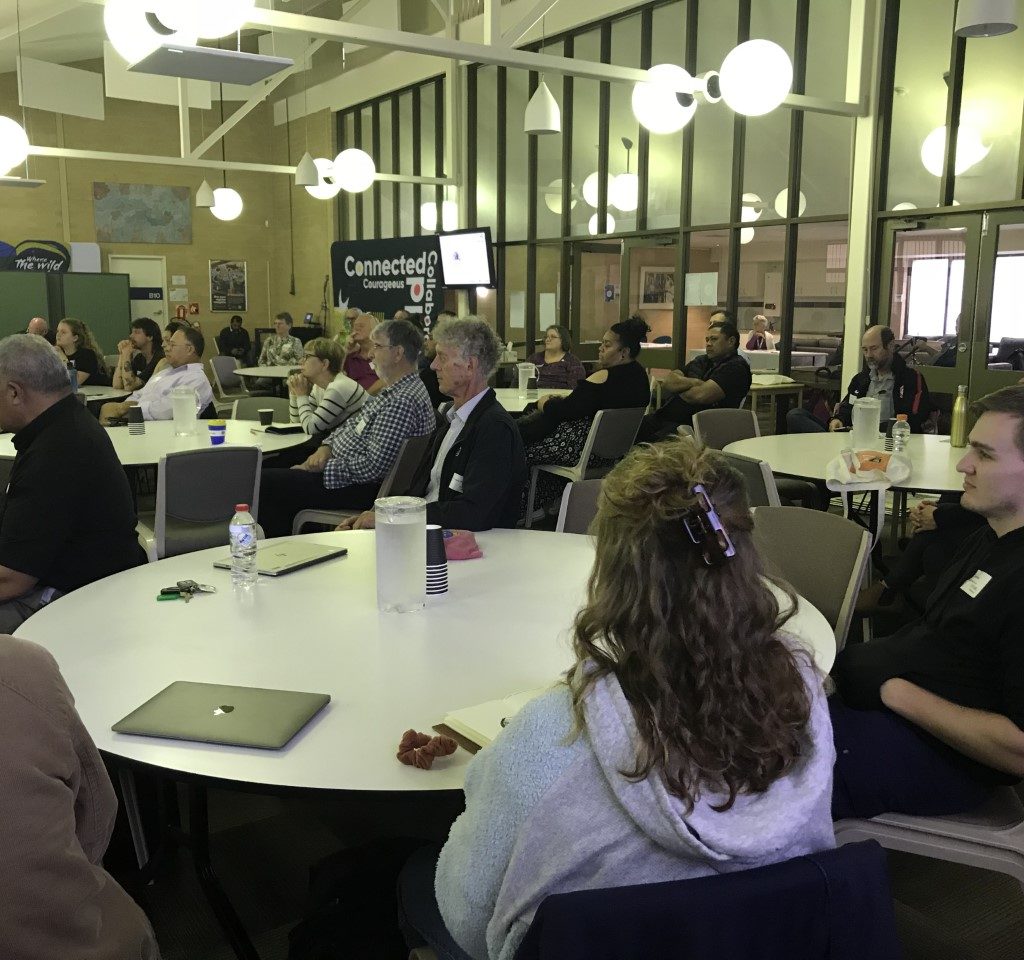Stories of a rain soaked, and flooded NSW were the backdrop to the Synod Climate Strategy Future Directions conference last Saturday. Some stories were tragic – devastated businesses, whole communities under threat of evacuation, a soon to be married couple losing all their worldly goods. Others were quietly heroic- SES volunteers rescuing families from flooded properties, neighbours rounding up a farmer’s stranded stock, men and women bagging sand through the night. But all spoke of the intrusion of climate change and the extreme weather which results, into our daily lives.
In 2019 the Synod of NSW and ACT resolved to develop a climate action strategy. It recognised that the adverse impacts of climate change are happening now. The aim was (and is), to call on our political leaders to take much bolder steps to reduce greenhouse gas emissions as well as to reduce emissions across all parts of the church, to prevent worse impacts in the future.
Since then five task groups have been striving to put those goals into action. Much has been achieved. Church members and Synod and agency staff have stood with young people in School Strike 4 Climate events. Resources on how individual choices in our diet, what transport we use, and our home energy decisions can reduce emissions have been developed and distributed. A Synod electric vehicle policy is nearing finalisation and work on a plan to be net carbon neutral by 2040 is underway. And because a lot of carbon is emitted in the building process, work on sustainable buildings, for example within our church agencies such as Uniting, is also crucial for the future.
And that’s what the conference last Saturday was about- the future! It asked what more we can do. How can we as the Uniting Church contribute to positive climate policy and action in this country? Despite the terrible weather around 45 people came in person with another 40 or so joining online.
Moderator Rev. Simon Hansford, anchored care for creation in our faith and God’s work of reconciliation. “We are reconciled to God, to each other and to creation,” the Moderator said. “We bear witness to our hope by how we act now-to each other and the world in which we live.”
In his keynote address, Chris Gambian, Chief Executive of the Nature Conservation Council of NSW, argued that while personal action to reduce emissions is important, systemic change by government and big business is required, because of its greater impact. He affirmed that, as the church is present in all communities, our concerns about global warming “cannot be readily dismissed”, by those in power.
The heart of the conference, though, was a series of eight workshops. A central aim was was to learn from the action and insights within our own church and the wider community. Workshop topics included: opposing coal seam gas; bringing unlikely allies together to protect the environment (e.g. farmers and environmentalists; and advocacy to government. Other workshops highlighted the concerns and perspectives of particular groups: First Nations people; Pacific Islanders and; young people in particular
The final session distilled learning from the talks and workshop discussions into key themes for future action. These included:
- Taking bolder action consistent with our values, both in advocacy to government and reducing our own emissions
- Building community across differences – whether of age, culture or location. This requires purposefully listening and finding common ground with those with different views – including communities dependent on fossil fuels.
- Supporting diversity in leadership on climate action – especially promoting the voices and perspectives of our Pacific Islander communities, First Nation’s peoples and our youth – in both awareness raising within the church and advocacy in the public sphere
- Building our capacity to act and deepening our engagement with congregations and communities. Identifying and resourcing local climate action leaders who can engage and mobilise others, is a crucial first step.
More work will be done in coming weeks to develop a more complete plan for the next phase of the Synod Climate Action Strategy. Look out for further developments and ways you can be involved in this work that matters for us all. To find out more you can contact members of the Uniting Advocacy team at: advocacy@uniting.org.
Jon O’Brien
Uniting’s Advocacy Team














